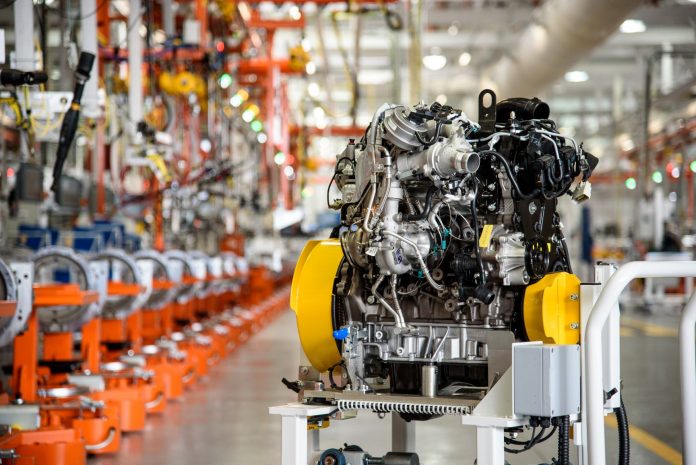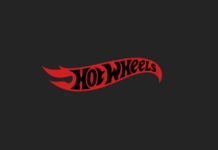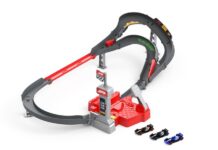Ford Motor Company of Southern Africa (FMCSA) has embarked on a far-reaching engine donation programme to support skills development and training at technical high schools across South Africa. A total of 240 engines, valued at R7.8-million, are being donated, which reaffirms the commitment of Ford Motor Company to empowering the country’s youth, creating the platform for upliftment and prosperity, and realising a brighter future for all South Africans.
The engines are assembled at Ford’s Struandale Engine Plant in Port Elizabeth, which currently operates two engine programmes: the new-generation 2.0 Bi-Turbo and 2.0 Single Turbo engine family, as well as the established 2.2 and 3.2-litre Duratorq TDCi units. These engines are produced for the domestic market and export customers around the world, and are used in a variety of models including the Ford Ranger pickup, the Ranger Raptor high-performance off-road pickup, the Everest seven-seater sport utility vehicle (SUV), as well as the European-built Ford Transit.
“Ford Motor Company has been a leading player in the South African automotive industry for more than 96 years, an exceptionally proud legacy built on continued investment and innovation to build segment-defining products, empowering communities through creating job opportunities, and striving to improve the world around us for a brighter future,” says Neale Hill, MD of FMCSA.
“Corporate social responsibility is more than simply a box that we tick at Ford. It’s an integral part of the way we do business, and this is embodied in our inspiring new brand campaign, Ford For South Africa, which endorses our unwavering dedication to the country,” Hill adds. “Being a responsible corporate citizen means playing an active role in addressing the many challenges South Africans face, and arguably the biggest challenge we are dealing with currently is the high level of unemployment, particularly amongst our youth.
“To address this, we dedicate extensive resources, expertise and manpower to creating opportunities to educate and empower our future entrepreneurs, engineers, community leaders and business pioneers, with a specific focus on uplifting the previously disadvantaged members of our community, and women in particular.
“It is with this in mind that I am delighted to announce that we are donating 240 engines produced at our Struandale Engine Plant. We have partnered with the Department of Basic Education to supply these engines to technical high schools across the country, with the aim of promoting technical skills development and training in the automotive sphere,” Hill explains.
“This will give learners the opportunity to understand and appreciate the inner workings of modern engines, and will help ignite greater interest in the field of automotive manufacturing and technology. We trust it will also lead to an even greater focus on the diverse range of engineering disciplines to address the shortage of these essential skills in South Africa.”
The Minister of Basic Education, Mrs Angie Motshekga, said: “As Government, our capacity is constrained due to the prevailing low economic growth and falling tax revenues. Like never before, we need partners to augment not just the technical aspect of our work, but also to become part of the thinking pack. We need new ideas.”
Minister Motshekga said that the partnership between the Department of Basic Education and Ford Motor Company of Southern Africa would play a pivotal role in boosting efforts to stimulate the local economy, and address the technical skills shortage the country is facing.
“The Department of Basic Education is delighted to receive the 240 engines from Ford to support the skills revolution in our country,” Motshekga added. “The engines we are receiving today will power the future, and unleash our learners’ new potential in ways unimaginable before. I am glad that Ford has joined our efforts to take us forward, and I am certain that this initiative will contribute in growing our learners’ skills at the school level and beyond.”
Ford Motor Company a key investor in the future of South Africa
Ford Motor Company of Southern Africa is exceptionally proud to be one of the country’s largest vehicle manufacturers and exporters with the exceptional Ranger, Ranger Raptor and Everest being produced at its Silverton Assembly Plant in Pretoria. All of the diesel engines used in the locally assembled vehicles are produced at Ford’s Struandale Engine Plant, with fully assembled engines and components also exported around the world. Ford currently contributes over 1 percent to South Africa’s total gross domestic product (GDP), employs approximately 4 300 people and supports over 50 000 jobs in the total value chain.
“Ford Motor Company plays a key role in the local economy through continued investment in our manufacturing operations,” says Dhiren Vanmali, Ford Motor Company’s Executive director, Government Affairs for Africa. “Between 2009 and 2018 alone, we invested over R11-billion in our local plants, and we continue working towards further expanding our footprint globally.
“Last year we were delighted to officially launch a ground-breaking public-private partnership with national, provincial and local government in the establishment of the Tshwane Automotive Special Economic Zone (SEZ), adjacent to the Silverton Assembly Plant,” Vanmali adds. “This automotive supplier park will not only help unleash future expansion possibilities for our local operations, but will create thousands of additional jobs within the total value chain, providing a significant economic boost for the local communities, the City of Tshwane, the Gauteng Province and, of course, South Africa as a whole.”
Ford has various Learnership, Apprenticeship and Experiential Trainee programmes in place to drive skills development across various fields. Over the past five years at the Silverton Assembly Plant, Ford assisted 165 learners gain their NQF qualifications in Automotive Repairs and Maintenance, along with 220 in Autotronics, 765 in Business Administration, 34 in Fitting, 187 in Mechatronics. Additionally, over 1 800 learners attained their National Certificate in Automotive Manufacturing and Assembly.
Over 120 apprentices have completed their training as electricians, fitters, millwrights and motor mechanics, and almost 1 500 experiential trainees have completed programmes at Ford in administration and the wide range of engineering fields, including electrical, industrial, logistics, mechanical and mechatronics. More than 660 of these learners have subsequently been employed at Ford, with the remainder entering the broader industry with highly marketable and high-demand qualifications and skills sets that give them a solid footing for embarking on a future career.
Ford Motor Company is renowned for its wide range of humanitarian initiatives aimed at uplifting communities, empowering people through skills development and training, and working tirelessly to create a better world. In the midst of the current COVID-19 pandemic, Ford dedicated its resources and facilities at the Silverton plant to producing protective face shields to help reduce the spread of the coronavirus. Over 285 000 face shields have been produced to date, with more than 140 000 donated directly to the Department of Health.
Throughout the year, Ford employees and dealers support a wide range of community programmes, but it’s the annual Global Caring Month in September where the focus on improving and changing people’s lives really comes together. Ford volunteers across Southern Africa join forces to reach out and assist communities in a coordinated and impactful manner. Last year, 30 non-profit organisations received support from Ford volunteers across the region, with grants from the Ford Motor Company Fund helping them to make a real difference in peoples’ lives.
FMCSA also runs the Ford Resource and Engagement Centre (FREC), which provides skills development and training for community members from Mamelodi, near the Silverton plant. The graduates are 90-percent female, and receive training in a variety of fields, such as early childhood development, which helps them get jobs or start their own business.
In association with global non-profit organisation Enactus, the Ford College Community Challenge empowers student-led projects across the country to address critical issues in their communities. The recently announced winners of the programme for 2020 each received a $5 000 grant from the Ford Motor Company Fund to put their ideas into action in South Africa.
“In January this year, we donated R1-million to the Student Sponsorship Programme trust, which provides opportunities for high-achieving learners from under-privileged communities to attend some of the top public and private high schools in the country,” Vanmali states. “We committed to sponsoring 10 academically distinguished yet economically disadvantaged students, who each receive the SSP five-year leadership programme that covers their tuition, uniform, sports gear, academic monitoring and mentorship.”
Ford’s involvement also extends to environmental conservation, research and education programmes through the Ford Wildlife Foundation, which was established in 2014. The FWF currently supports 25 projects across the region through providing each project with a Ford Ranger Double Cab 4×4 to assist them in effectively implementing their wide range of initiatives. Community involvement and education is a crucial part of the work the FWF projects do to ensure the sustainability of threatened and endangered animals, plant species and habitats.
Ford Struandale Engine Plant
The Ford Struandale Engine Plant in Port Elizabeth is home to two engine programmes currently. The latest and most advanced products are the new-generation 2.0 Bi-Turbo and 2.0 Single Turbo engines that power the locally assembled Ford Ranger Raptor, as well as the range-topping Ranger and Everest models.
The introduction of the new diesel engine programme followed an investment of R3-billion in Ford’s South African operations at the Struandale Engine Plant and the Silverton Assembly Plant, announced in 2017. A new assembly hall was built for the new engine programme, which has an installed capacity to produce up to 120 000 engines per year.
“Our new assembly line incorporates Ford’s latest, state-of-the-art manufacturing processes that guarantee the highest standards of workmanship, product quality and performance,” says Shawn Govender, Plant manager of the Ford Struandale Engine Plant. “The advanced sub-assembly line for the cylinder head features four automated robotic stations that ensure maximum precision in the fitment of parts.”
A key feature of the Struandale Engine Plant since 2011 has been the component machining and engine assembly for the 2.2 and 3.2-litre Duratorq TDCi engines, that are used in selected Ford Ranger and Everest models for the local and export markets, and for the Ford Transit in Europe. With an installed capacity for up to 130 000 fully assembled units per year, engines are also exported to customer plants in China, Russia, Turkey and Italy.
The Struandale Engine Plant also machines cylinder heads, blocks and crankshafts for the Duratorq TDCi engine, with an installed capacity of up to 280 000 component sets per annum. These are used for local engine assembly, and are exported to Ford engine assembly plants in Thailand and Argentina.
“In recognition of our status as one of the Eastern Cape’s leading exporters, earlier this month we earned two Exporter of the Year awards from Exporters Eastern Cape,” Govender adds. “We received the Best Exporter OEM award for the fourth time and, crucially, won the IDC Job Creation Award for the second consecutive year, reaffirming our commitment to employment and skills development.
As with the Silverton plant, the Port Elizabeth facility has numerous learnership, apprenticeship and experiential programmes in place. The Learnership Programme in conjunction with merSETA began in 2012 with 15 learners, and expanded to 104 learners by the end of 2018. The learnership covers National Certificate qualifications in Mechatronics, Automotive Manufacturing and Assembly, along with Millright apprentices, and experiential learners in the fields of Mechanical, Electrical and Administration. Many of these leaners have subsequently been employed at Ford.
“We also have great relationships with our local high schools, TVET colleges and the Nelson Mandela University, with learners given the opportunity to visit the plant and gain valuable insight into the manufacturing process, and the job opportunities the automotive industry presents.
“The entire Ford Struandale Engine Plant team is delighted and excited to share our world-class engines and technologies with learners around the country, hopefully fuelling their interest in the automotive industry for the future,” Govender concludes.
Provided by Ford South Africa




























